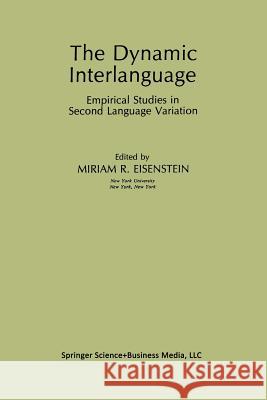The Dynamic Interlanguage: Empirical Studies in Second Language Variation » książka
The Dynamic Interlanguage: Empirical Studies in Second Language Variation
ISBN-13: 9781489909022 / Angielski / Miękka / 2013 / 324 str.
Recent work in applied linguistics has expanded our understanding of the rule- governed nature of language. The concept of an idealized speaker -hearer whose linguistic competence is abstract and separate from reality has been enriched by the notion of an actual interlocutor who possesses communicative compe- tence, a knowledge of language which accounts for its use in real-world con- texts. Areas of variation previously relegated to idiosyncratic differences in performance have been found to be dynamic yet consistent and lend themselves to study and systematic description. Because language acquisition involves the development of communicative competence, by its very nature it incorporates variation and systematicity. Sec- ond-language acquisition is similarly variable, since interlanguage is subject to the same universal and language-specific conventions. In addition, aspects of the second language have been found to be unevenly acquired and are differ- entially reflected in particular contexts or settings. Yet, despite our expanding knowledge, this variability is only beginning to be treated in much of the sec- ond-language acquisition literature. This volume presents the work of some researchers and methodologists who have taken on the challenge of including variation in their research designs and pedagogical recommendations. Variation is shown to be relevant to lin- guistic, social, and psychological aspects of language. It is apparent in the registers and dialects of the target language and in the inter language of learners.











